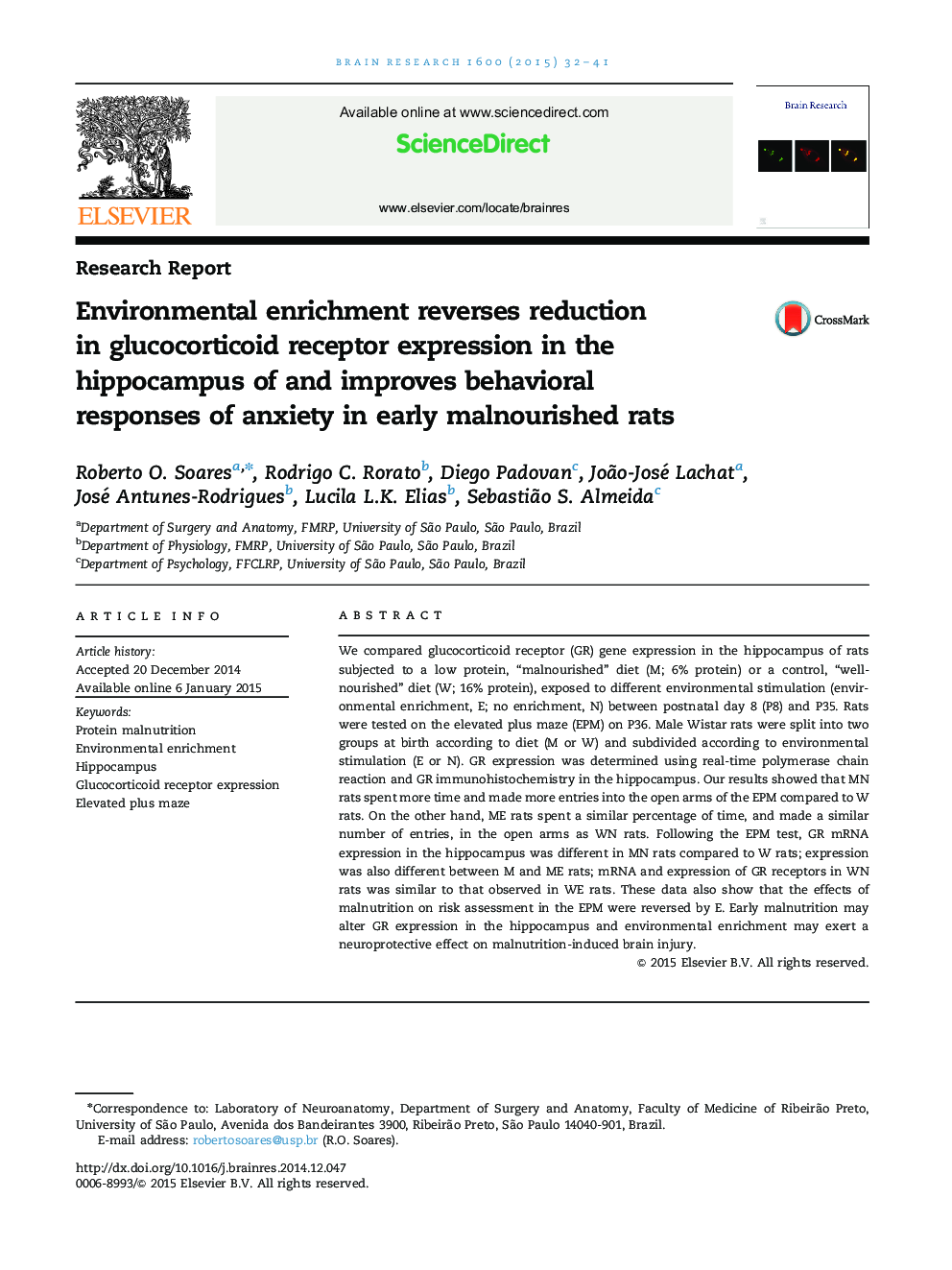| Article ID | Journal | Published Year | Pages | File Type |
|---|---|---|---|---|
| 6263134 | Brain Research | 2015 | 10 Pages |
â¢Malnourished rats show an impaired risk assessment in the EPM test.â¢The malnutrition's effects can be reversed by environmental stimulation.â¢The early malnutrition may alter the GR expression in the hippocampus.â¢The environmental stimulation can change the GR expression in the hippocampus.
We compared glucocorticoid receptor (GR) gene expression in the hippocampus of rats subjected to a low protein, “malnourished” diet (M; 6% protein) or a control, “well-nourished” diet (W; 16% protein), exposed to different environmental stimulation (environmental enrichment, E; no enrichment, N) between postnatal day 8 (P8) and P35. Rats were tested on the elevated plus maze (EPM) on P36. Male Wistar rats were split into two groups at birth according to diet (M or W) and subdivided according to environmental stimulation (E or N). GR expression was determined using real-time polymerase chain reaction and GR immunohistochemistry in the hippocampus. Our results showed that MN rats spent more time and made more entries into the open arms of the EPM compared to W rats. On the other hand, ME rats spent a similar percentage of time, and made a similar number of entries, in the open arms as WN rats. Following the EPM test, GR mRNA expression in the hippocampus was different in MN rats compared to W rats; expression was also different between M and ME rats; mRNA and expression of GR receptors in WN rats was similar to that observed in WE rats. These data also show that the effects of malnutrition on risk assessment in the EPM were reversed by E. Early malnutrition may alter GR expression in the hippocampus and environmental enrichment may exert a neuroprotective effect on malnutrition-induced brain injury.
